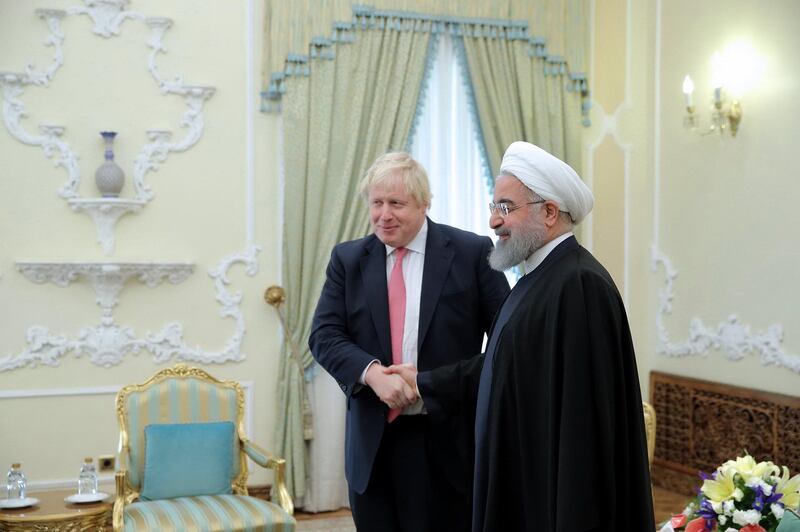Britain’s foreign secretary Boris Johnson stressed the need on Monday for full humanitarian and commercial access to Hodeidah to be opened up, but cautioned that this had to be balanced by valid security concerns that shipments of arms for the Houthi rebels were also being smuggled through the Yemeni port, which handles more than 80% of the country’s food imports.
Reporting back to the House of Commons on his three-day trip to the Middle East and Gulf, Mr Johnson said “to prevent further starvation and suffering, it is essential to get supplies flowing through Hodeidah, but to do that we must help to reassure the Saudis and others that that port is not being used to smuggle weaponry and to support those who are attacking civilians.”
He also confirmed that he had made strong representations to the Iran government about their support for the Yemeni rebels, saying that there had been “some pretty feisty exchanges” in his discussions with the country’s vice-president Ali Akbar Salehi especially in regards to attacks against Saudi Arabia.
“If we are to resolve the conflict in Yemen, Houthi rebels must stop firing missiles at Saudi Arabia,” Mr Johnson told MPs. “The House will recall that King Khalid International airport in Riyadh – Saudi Arabia’s equivalent of Heathrow – was the target of a ballistic missile launched from Yemen on 4 November. I pressed my Iranian counterparts to use their influence to ensure that these indiscriminate and dangerous attacks come to an end.”
_______________
Read more:
[ Boris Johnson holds 'frank' talks with Iranian foreign minister ]
[ Yemen rebels lose more territory in Hodeidah ]
_______________
Despite his “frank” words with the Iranians – Mr Johnson also met president Hassan Rouhani and the foreign minister, Mohammad Javad Zarif – he stressed Britain’s continuing support for the nuclear deal signed in 2015, saying that “the UK attaches the utmost importance to preserving this agreement” and that the West “must keep their side of the bargain by helping the Iranian people to enjoy the economic benefits of re-engagement with the world.”
The foreign secretary also revealed that during his meeting in Abu Dhabi on Sunday with UAE’s leaders of the UAE, the Saudi foreign minister, Adel al-Jubeir, and colleagues from the United States, there had been agreement “on the need to revive the political process [in Yemen], bearing in mind that the killing of the former President, Ali Abdullah Saleh, by the Houthis may cause the conflict to become even more fragmented.”
Mr Johnson said that the meeting had also “discussed how best to address the missile threat from Yemen, welcoming the United Nations investigation into the origin of the weapons launched.”





